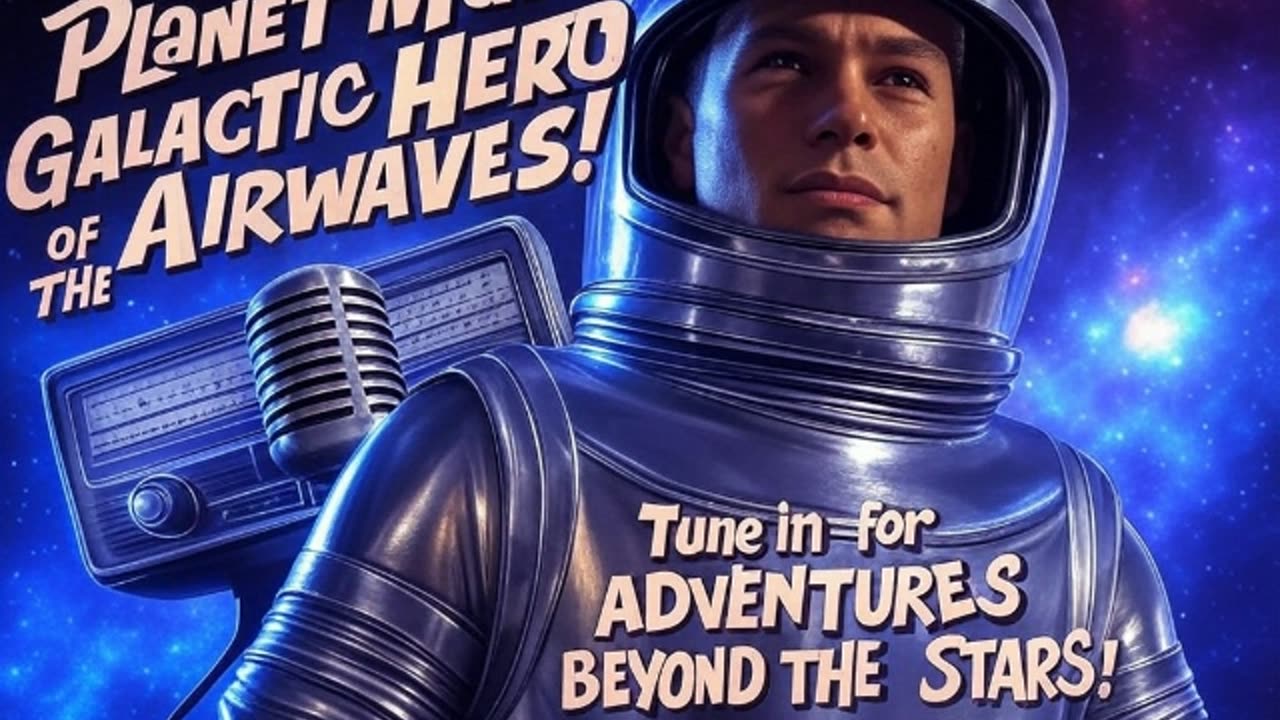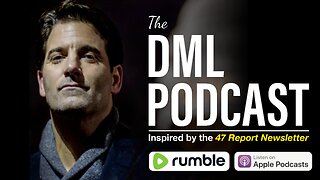Premium Only Content

Planet Man - Episode 003 Hypothetical, Mid-1952
In Episode 003 of Planet Man, Dantro, the heroic Planet Man, likely responds to a distress call from a distant planet or space station under threat from intergalactic criminals or a rogue faction. Accompanied by his allies, including the youthful Billy and Jane, Dantro uses his advanced technology and quick thinking to investigate. The episode probably features a villainous plot—perhaps a scheme to disrupt the League of Planets’ operations or seize control of a strategic resource. Action unfolds with space battles, clever disguises, or diplomatic negotiations, showcasing Dantro’s bravery and resourcefulness. The story resolves with the League’s triumph, reinforcing themes of unity and justice, typical of the show’s optimistic tone. Sound effects like rocket engines and ray guns enhance the serialized adventure.
Cast and Roles
Bryna Raeburn as Dantro, the Planet Man: The charismatic lead, a galactic hero with advanced gadgets and a mission to protect the League of Planets.
Marjorie Anderson as Jane, Dantro’s Ally: A resourceful female companion, often providing strategic support or moral guidance.
Joseph Boland as Billy, Young Sidekick: A teenage adventurer, adding youthful energy and occasional comic relief.
Ralph Camargo as Various Villains/Supporting Characters: Voiced antagonists like space pirates or corrupt officials, as well as minor allies.
Announcer (Unknown): Provided opening narration, setting the stage for the cosmic adventure.
Note: Planet Man cast details are not well-documented, and specific episode credits are unavailable. The listed actors are based on known performers associated with the series, with roles inferred from typical characters. Radio shows often used small ensembles with actors playing multiple parts.
News in the USA - Week of July 14–20, 1952 (Assumed Air Date)
Presidential Election Campaign: The 1952 presidential race heated up. The Republican National Convention (July 7–11) nominated Dwight D. Eisenhower, with Richard Nixon as his running mate. Democrats prepared for their convention (July 21–26), where Adlai Stevenson would emerge as the nominee. Political rallies and radio broadcasts dominated public attention.
Korean War Developments: The U.S. continued heavy involvement in the Korean War. Peace talks at Panmunjom stalled, and U.S. Air Force jets bombed North Korean targets, including power plants. Casualty reports fueled anti-war sentiment at home.
Polio Epidemic: A severe polio outbreak swept the U.S., with thousands of cases reported, especially among children. Hospitals were overwhelmed, and public health campaigns urged vaccination and hygiene measures.
Entertainment: Hollywood released films like High Noon, starring Gary Cooper, which became a cultural touchstone. Radio serials like Planet Man competed with early television, as shows like I Love Lucy gained popularity.
News in the World - Week of July 14–20, 1952
Egyptian Revolution Brewing: In Egypt, tensions escalated between King Farouk’s regime and the Free Officers Movement. The coup on July 23, 1952, led by Gamal Abdel Nasser, was imminent, signaling a shift in Middle Eastern politics.
Korean War Global Impact: The United Nations, led by U.S. forces, intensified airstrikes in North Korea, drawing criticism from the Soviet Union and China. The conflict heightened Cold War tensions, with fears of escalation.
Helsinki Olympics: The 1952 Summer Olympics opened in Helsinki, Finland, on July 19. The U.S. and Soviet Union competed fiercely, with the USSR’s debut in the Games marking a new era of athletic rivalry. Highlights included Emil Zátopek’s triple gold in track.
European Integration: In Europe, the Treaty of Paris (signed April 1951) took effect, establishing the European Coal and Steel Community, a precursor to the European Union. France, Germany, and others aimed to prevent future wars through economic cooperation
-
 LIVE
LIVE
Wendy Bell Radio
5 hours agoLike Sheep To Slaughter
8,496 watching -
 LIVE
LIVE
DML
1 hour agoDML LIVE: NYC Goes Socialist: Mamdani’s Victory
538 watching -
 1:04:43
1:04:43
Chad Prather
13 hours agoTruth on Trial: When Fear Meets Faith
47.2K18 -
 LIVE
LIVE
LFA TV
12 hours agoLIVE & BREAKING NEWS! | WEDNESDAY 11/5/25
3,489 watching -
 LIVE
LIVE
The Chris Salcedo Show
12 hours ago $0.09 earnedDems Win In Dem States...And They Celebrate?
633 watching -
 1:04:43
1:04:43
Crypto Power Hour
10 hours ago $0.03 earnedPsychology Of Crypto Market Cycles
28.3K6 -
 9:58
9:58
Clintonjaws
12 days ago $0.17 earnedKaroline Leavitt's Response To 'The View' Host's Nasty Attacks Is Perfect
26.9K22 -
 24:23
24:23
World2Briggs
20 hours ago $0.03 earnedTop 10 Towns You Can Retire on $1900 a month in the Pacific North West.
18.6K8 -
 21:23
21:23
Lady Decade
17 hours ago $0.04 earnedThe Lost Sega Neptune Console Refuses To Die !
27.3K5 -
 17:14
17:14
ThinkStory
22 hours agoIT: WELCOME TO DERRY Episode 2 Breakdown, Theories, & Details You Missed!
23.1K